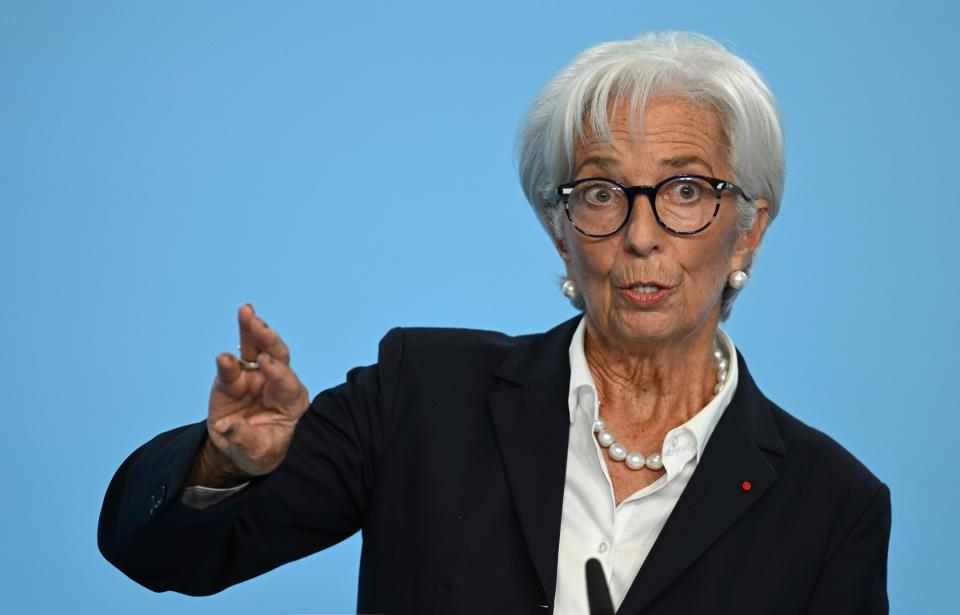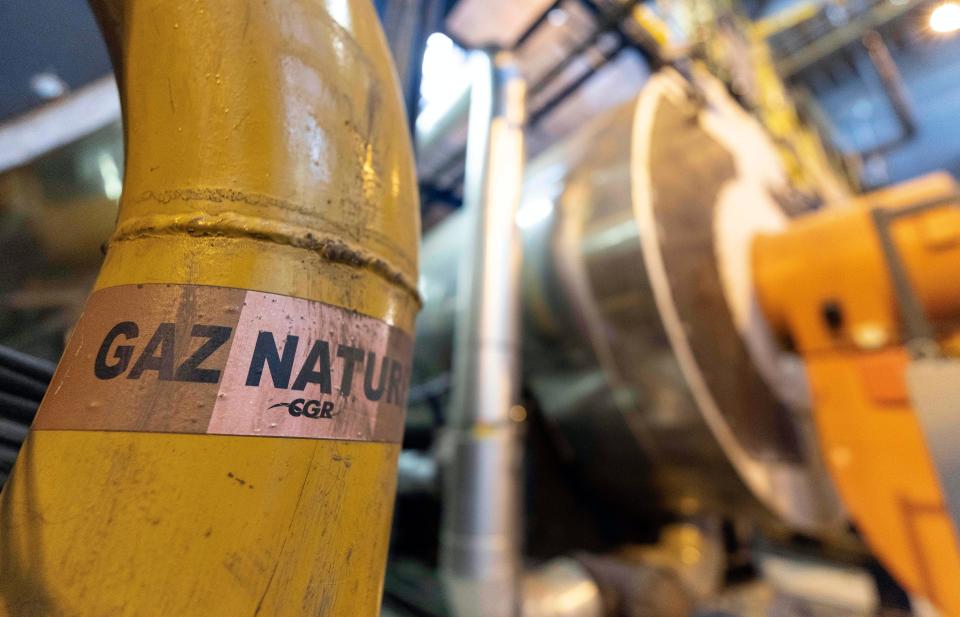Doc’s Prescription: Eurozone inflation hits record high of 10.7%
- Oops!Something went wrong.Please try again later.
On Oct. 31, the European Commission revealed that headline inflation reached 10.7% in October for the 19 countries that use the euro as their currency. This is the highest monthly reading since the formation of the eurozone.

In recognition of the upward pressure on prices, the European Central Bank (ECB) announced it was raising interest rates by 75 basis points. The ECB has not instituted such a big increase since 1999, during the very early days of the eurozone. The ECB, whose mandate is to keep inflation near 2%, broke with a more than decade of negative interest rates over the summer in a bid to curtail price increases.
Central banks use interest rates to make money more or less expensive to either boost or restrain spending as they directly influence the rates that commercial banks offer to households and businesses.

ECB chief Christine Lagarde warned that economic activity in the eurozone likely “slowed significantly in the third quarter of the year, and we expect a further weakening in the remainder of this year and the beginning of next year.”
Worsening Outlook: ECB Warns Record Inflation Spells Trouble for Banks, States
Jumbo hike: European Central Bank announces new super hike of interest rates to tame inflation
Doc’s Prescription: ECB joins the Fed in full-throated offensive against rising prices
High energy and food prices have pushed inflation to record levels. Over the past 12 months, energy prices have increased by 41.9% while food prices have increased 13.1%. High energy prices have been a headwind for the eurozone economy because they leave households with less to spend on goods and services, while increasing the costs for businesses, especially for energy-intensive factories.
Double-digit inflation rates have impacted at least half of the eurozone countries: Germany (11.6%); the Netherlands (16.8%); Italy (12.8%); and Slovakia (14.5%).
Russia’s invasion of Ukraine has led to higher inflation. Because of Russia’s reduced exports of oil and gas to Europe, the nations in the region have had to look to other regions and pay much higher prices to meet their energy needs. EU countries have debated capping gas prices as a way to stem rises in energy costs triggered by plummeting Russian gas supplies, while others have opposed it.
The International Monetary Fund reported that a shutoff of remaining Russian gas flows to Europe, combined with a cold winter, could cause shortages, rationing and gross domestic product losses of up to 3% in some central and eastern economies. It could also cause another bout of inflation across the continent.

Klaas Knot, a senior ECB official, said that the bank was not even halfway through its campaign to reduce inflation. Mr. Knot said that the ECB could increase interest rates by either 50 basis points or 75 basis points in December. In addition, the ECB will shrink its balance sheet. He said, “Then we will be in the zone where we will effectively cool down the economy, which is necessary to bring inflation down from 10% to 2% in the next 18 to 24 months.”
While it is hoped that raising rates will bring down inflation, there is growing concern that these efforts will cause the eurozone to enter a recession. The International Monetary Fund (IMF) warned, “European policymakers face severe trade-offs and tough policy choices as they address a toxic mix of weak growth and high inflation that could worsen.”
The rise in the cost of living has triggered a wave of protests across Europe. This is testing the resolve of their governments to maintain unity in their costly economic war with Russia.
Lucrezia Reichlin, an economics professor at the London Business School, said that supply shortages are not the sole problem; increasing demand from consumers is also contributing to rising prices. Europe’s high inflation rate is fueling demand for higher pay. This could result in further price rises.
Sarasota resident Ernest “Doc” Werlin spent 35 years in fixed income as a trader and corporate bond salesman, including time as a partner at MorganStanley in charge of corporate bond trading. Send suggestions and comments to ernestwerlin@gmail.com or visit docwerlin.com.
This article originally appeared on Sarasota Herald-Tribune: ECB fights record inflation with largest interest rate hike since 1999

